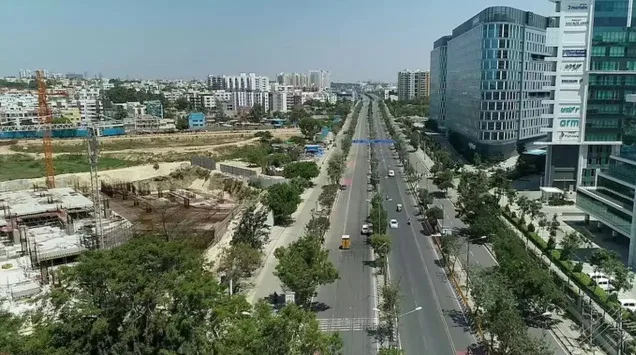Houston’s commercial real estate landscape has long been a focal point for investors, developers, and businesses seeking growth opportunities in the heart of Texas. As the fourth-largest city in the United States, Houston boasts a diverse and thriving market, shaped by its unique economic drivers, geographical advantages, and evolving trends. In this blog post, we will delve into the dynamic world of commercial real estate in Houston, exploring key insights and perspectives that shape the industry’s trajectory.
Understanding Houston’s Economic Foundation
Houston’s economic prowess has played a pivotal role in shaping its commercial real estate landscape. The city is often referred to as the “Energy Capital of the World” due to its deep-rooted ties to the oil and gas industry. While energy remains a significant driver of Houston’s economy, diversification has been on the rise. The healthcare, aerospace, and manufacturing sectors have made substantial contributions, providing stability and resilience to the market.
The Impact of Energy on Houston’s Real Estate
The energy sector’s influence on Houston’s real estate market cannot be overstated. While the industry has faced fluctuations, it continues to drive demand for office space and industrial facilities. Oil and gas companies, as well as related service providers, maintain a strong presence in the city, leading to consistent leasing activity and investment opportunities.
The Healthcare Hub
Houston’s renowned medical institutions, such as the Texas Medical Center, have transformed the city into a healthcare hub. This sector’s growth has fueled demand for medical office buildings, research facilities, and residential spaces catering to healthcare professionals. Investors and developers keen on the healthcare niche find ample opportunities within the city limits.
Beyond Energy and Healthcare
Houston’s diversification extends to fields like aerospace, manufacturing, and technology. The presence of NASA’s Johnson Space Center and a burgeoning tech scene have created a demand for specialized spaces. Industrial properties, research parks, and data centers have emerged as attractive investments, reflecting the city’s forward-looking economy.
Emerging Trends in Houston’s Commercial Real Estate
The commercial real estate landscape in Houston is in constant flux, shaped by evolving trends and market forces. Understanding these trends is crucial for industry players looking to make informed decisions.
The Rise of Mixed-Use Developments
Mixed-use developments have gained popularity in Houston, offering a blend of residential, retail, and office spaces. These vibrant, walkable communities cater to a diverse population and promote sustainable urban living. Developers are increasingly incorporating mixed-use elements into their projects to meet the demand for convenience and connectivity.
Adapting to Remote Work
The COVID-19 pandemic has accelerated the adoption of remote work, prompting businesses to reevaluate their office space needs. Houston’s commercial real estate sector is adapting to this shift, with flexible office spaces and coworking facilities gaining traction. The demand for innovative office solutions remains high, as companies seek flexible arrangements that balance remote and in-person work.
Sustainability and ESG Initiatives
Environmental, Social, and Governance (ESG) considerations are increasingly influencing real estate decisions. Houston has witnessed a growing emphasis on sustainable building practices, energy-efficient design, and community engagement. Investors and tenants alike are placing a premium on properties that align with ESG principles.
Challenges and Opportunities
The Houston commercial real estate landscape is not without its challenges, but these challenges often bring opportunities for those willing to navigate them strategically.
Flood Risk and Resilience
Houston’s vulnerability to flooding is a well-known challenge, driven by its geographic location and climate patterns. However, this challenge has given rise to opportunities in flood-resilient design and infrastructure development. Forward-thinking projects that address flood risk are becoming more attractive to investors and tenants concerned about long-term viability.
Competition and Pricing
As the market diversifies, competition among investors and developers intensifies. Pricing remains a critical consideration, and savvy investors are exploring emerging submarkets and value-added opportunities. Strategic acquisitions and partnerships can unlock hidden potential in Houston’s real estate market.
Regulatory Landscape
Navigating the regulatory environment in Houston can be complex, with zoning laws, permitting processes, and tax considerations to contend with. Engaging with local authorities and legal experts is essential to ensure compliance and mitigate risks.
Conclusion
Houston’s commercial real estate landscape offers a rich tapestry of opportunities, driven by its economic diversity, evolving trends, and forward-looking initiatives. While challenges exist, they are met with innovative solutions and resilience. As the city continues to evolve, industry players must stay informed, adapt to change, and embrace the dynamic nature of the Houston market. By understanding the unique perspectives and insights outlined in this blog post, stakeholders can make informed decisions that contribute to the growth and prosperity of Houston’s commercial real estate sector.





